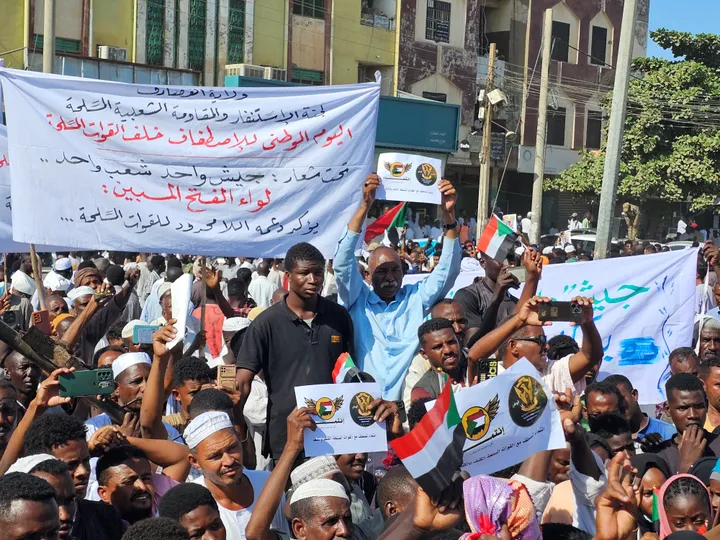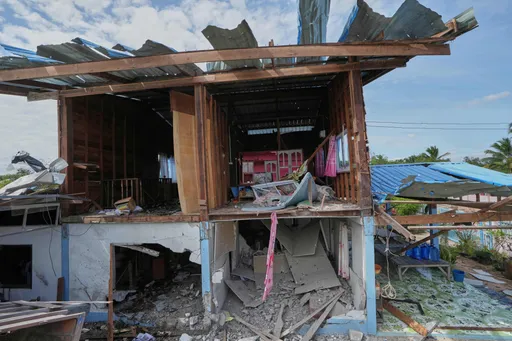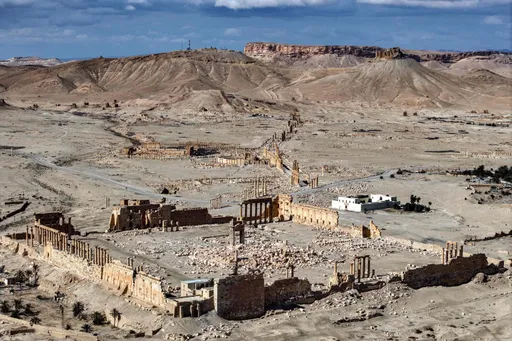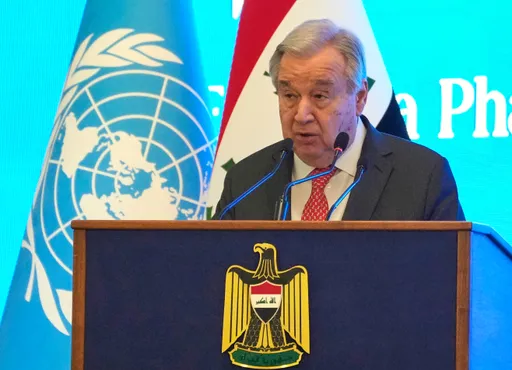Anti-Iran hawks at the White House are likely furious at the decision by President Donald Trump to once again extend the waivers on five different nuclear-related sanctions on Iran, preserving a key part of the Iran nuclear deal (the JCPOA). The waivers fly in the face of the hawks' preferred 'maximum pressure' campaign against Iran.
But it's not only that, President Trump seems to be behind several moves testing the possibility of talks with Iran – despite the pressure his administration has placed on the country.
Over the past two weeks Iran has held talks with Oman and the UAE but also, unusually, has planned talks with Saudi Arabia, all with the ultimate aim of easing the heightened tension in Iran-US relations.
The sanctions waivers are not just Trump’s 90-day offering to Tehran but also to China and Russia. The waivers would allow Russia and China to continue their cooperation over five civilian nuclear projects with Tehran. But the move could also be read as a step towards appeasing China and Russia with whom Trump has said he wants to sign a new nuclear pact after he withdrew from a key nuclear treaty with Russia.
Iran’s maximum pressure response which included a phased withdrawal from the JCPOA, and a military stand-off in the Gulf, seems to have paid off causing enough concern in the US to have merited a more measured approach.
The approach might be what has led to a measured response from Iran today as they stated that they favour talks but only once US sanctions are removed.
Trump’s bounty for the hawks in his team was to agree instead to sanction Iran’s foreign minister, Javad Zarif.
“One assumes sanctioning Zarif is the price for those waivers,” said Wendy Sherman, former under-secretary of state.
Zarif described the sanctions against him as the failure of diplomacy.
The move was dismissed both in Iran and in the US. Iranian President Hassan Rouhani called it “childish”, and the Revolutionary Guard Corps called it “ridiculous” while Iran’s official armed forces labelled it “undiplomatic”. American analyst Barnett Rubin ridiculed the move in a Tweet.
Trump reportedly sided with Treasury Secretary Steven Mnuchin, who argued that the administration should renew sanctions waivers.
Secretary of State Mike Pompeo and national security adviser John Bolton had insisted that renewing the waivers would lessen the impact of the maximum pressure campaign and embolden Iran. Other reports from the United States indicated internal policy tensions saying the decision had been postponed a few times before John Bolton finally announced it.
When Iran surpassed the JCPOA cap on uranium enrichment on July 8, President Trump threatened in a Tweet that “Sanctions will soon be increased, substantially!”
Attacks on Saudi tankers and other vessels off the UAE coast, Iran’s downing of a US surveillance drone, and a plan for US air strikes on Iran last month—that Trump called off at the last minute—increased fears of a war in the region. Retaliatory tanker seizures between the UK and Iran further heightened tensions and remains unresolved.
Trump’s extension of waivers indicates that common sense has prevailed and a set of regional talks could provide a window for possible mediation.
A delegation from the United Arab Emirates and Iranian officials held a joint meeting on Tuesday in Tehran to revive maritime security talks that had been held off since 2013.
The UAE also pulled its troops out of Yemen as a gesture for easing tension and Iran welcomed the move.
Last week Iran also received a call from Riyadh for talks, describing it as a “positive signal.”
Oman’s Foreign Minister Yusuf bin Alawi bin Abdullah also went to Tehran on 28 July to discuss the impact of US sanctions. Oman was the primary mediator in the early stages of the Obama-era talks between Iran and the West and has historically been a mediator in the region.
Details of the talks are sketchy, but Saudi Arabia and the UAE have been staunch allies of President Trump since he came to power. The fact that they have both suddenly decided to hold talks with Iran indicates that in the very least they must have been approved or encouraged, if not spurred on, by the US president.
Before these talks, in a recent trip to New York on July 18, Iran’s foreign minister Javad Zarif offered what he described as a “substantial deal.” He had committed that Iran would formally and permanently accept enhanced inspections of its nuclear programme, in return for the permanent lifting of US sanctions.
In a separate gesture, Zarif has repeatedly distinguished President Trump from what he describes as his 'B-Team' (which refers to Bolton and Pompeo and the Israeli Prime Minister Benjamin Netanyahu) accusing them of planning a war or regime change in Iran. That’s probably why they were keen to sanction him in retaliation.
What Iran needs is a reduction in oil and banking sanctions so that it can sell its oil and receive money from international markets.
Their deadline for opting out of JCPOA is the US presidential elections. Iran’s presidential elections are due on May 2021. It benefits President Trump to resolve the tension now. Otherwise, Iran is highly likely to be led by a candidate from the Revolutionary Guard.
























